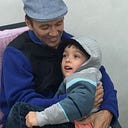Coined by mathematician Edward Lorenz, the term ‘butterfly effect’ posits the theory that a single butterfly, flapping its wings on one side of the globe, can start a hurricane on the other. Or, in other words, ‘a small action in one place can lead to a larger reaction in another’ (Cameron Keady, in ‘The Huffington Post.’ 3/16/15).
Why are we attracted to butterflies? They’re generally easy on the eyes. Some are wonderfully easy. They’re delicate and so light, they almost seem to float on air.
When we consider their life cycle, the transformation from egg to larva/caterpillar to pupa/chrysalis, thence to imago/adult butterfly, is wondrous. Perhaps one senses that, if one of God’s creatures can morph from a comparatively unattractive worm into something as lovely as a butterfly, there’s hope for us.
Nathanael Hawthorne used butterflies in a metaphor about happiness. “Happiness is like a butterfly. If you pursue it, it will elude you. On the other hand, if you stand still, quietly, it will often come and alight on your shoulder.”
To me, one of the great novels, not only of the 19th century, but of all time, is “Les Miserables.” It is an immense book (1260 pages, unabridged; 1862) and remains Victor Hugo’s most enduringly popular work. One touching scene occurs early, in Digne, where Jean Valjean, the main protagonist, goes after serving 19 years in prison for stealing a loaf of bread (for his hungry sister’s family) and subsequent escape attempt. Rebuffed by the villagers for being an ex-con, unable to find a place for the night, he is treated with compassion by M. Myriel, the saintly bishop of Digne. Upon his departure, Valjean repays that kindness by stealing silverware from his host.
When Valjean is arrested shortly thereafter, he claims the silverware was a gift (a lie; wrong #1). At Myriel’s house, to which the police take Valjean, the bishop not only affirms that the silverware was indeed a gift (a lie; wrong #2) but that Valjean had neglected to take additional pieces also gifted. The bishop knows that if he tells the truth, Valjean will be returned to prison, possibly for life. He encourages Valjean to become an honest man.
So, do two wrongs make a right? Art (particularly great art) recapitulates life. And vice-versa.
Had the bishop responded to the police in a manner that most of us, I suspect, would have deemed appropriate and defensible, Victor Hugo’s book would have been much shorter and less engaging.
The many subsequent acts of kindness (the butterfly effect, one might argue) of Valjean, including the release of police Inspector Javert, the main antagonist of the novel who pursues Valjean without relent throughout much of the book, and whom Valjean could have killed, flowed from the bishop’s compassion, after which Valjean did indeed repent. Javert’s ultimate suicide by casting himself into the Seine recalls Judas hanging himself after he betrayed Jesus.
One of Robert Frost’s better known poems is “The Road Not Taken.” Had he himself not taken that road, would/could he have written the poem?
M. Scott Peck was undoubtedly glad Frost did. “The Road Less Traveled” resonated with readers with such exuberance that the book’s royalties allowed Peck to pursue endeavors other than that in which he was professionally trained, namely psychiatry.
Was Frost the butterfly in this instance?
A case can be made that catchy titles may be to the book’s content what sizzle is to steak. One reviewer of “Women Who Run With The Wolves” maintained that the reason it became a bestseller was because of its title (having largely read the book by cantadora Clarissa Pinkola Estes, I see her point). Perhaps the butterfly in this case is the title.
Chris Rosati, a North Carolinian with ALS (amyotrophic lateral sclerosis, or Lou Gehrig’s disease, which is slowly taking his ability to walk and talk), wondered, “An act of kindness; how far could it go?”
At a diner in Durham, his hometown, he gave $50 each to two girls at an adjacent table. His simple request: do something kind.
Sometime later, after actually forgetting the incident, he received an e-mail, which included photos of people in Africa. The villagers held signs reading: “Thanks a lot for spreading kindness — Chris Rosati.”
The two girls were sisters, 10 and 13 years old. Knowing of a village in Sierra Leone where their father had been a Peace Corps Volunteer, they paid for a celebratory feast by the villagers for being (and remaining) Ebola-free.
Here’s a link to how one man tries to make the world a better place by practicing random acts of kindness:
